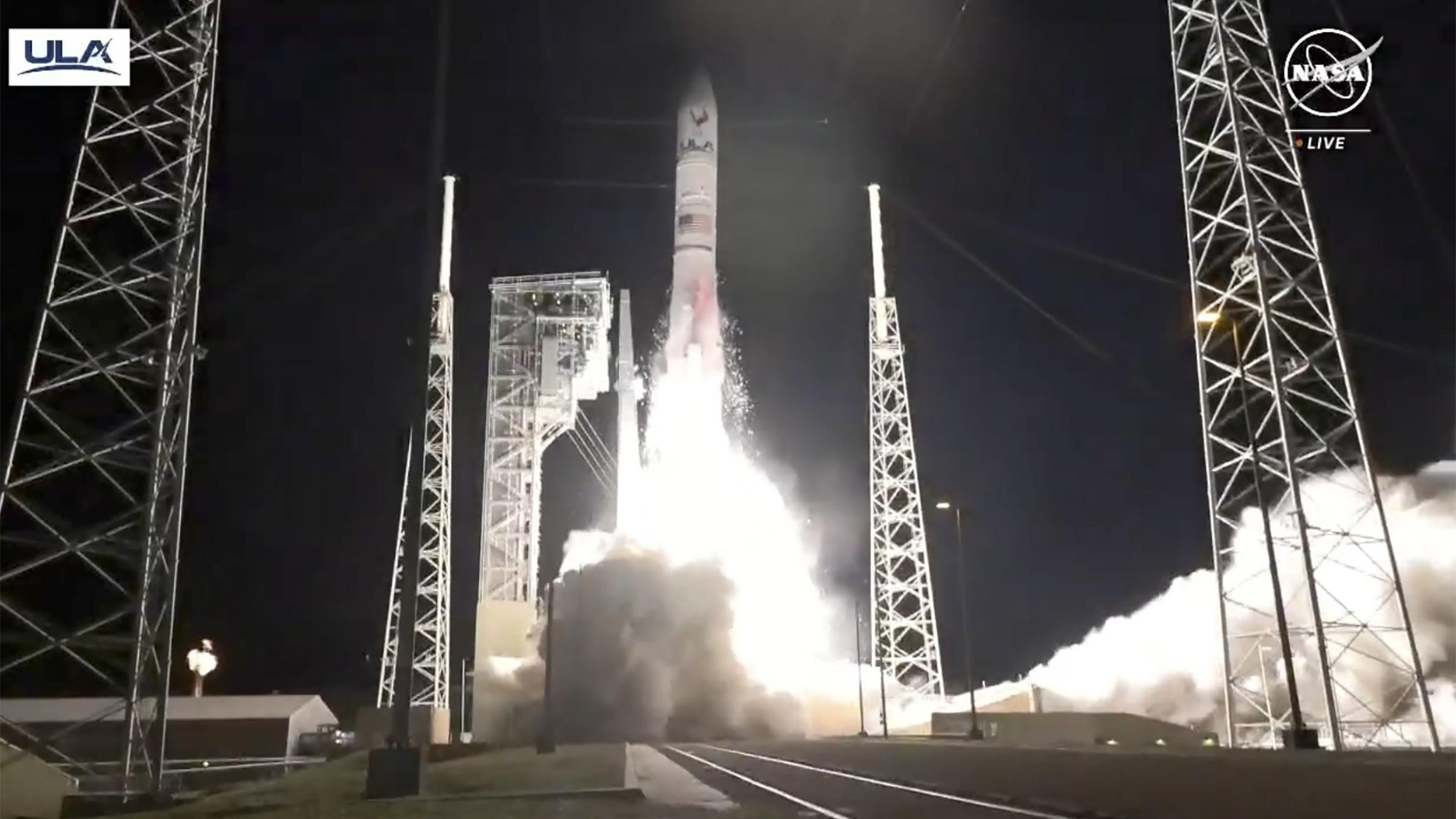 In this image made from NASA video, United Launch Alliance’s Vulcan rocket with Astrobotic Technology's lander onboard is launched from Cape Canaveral Space Force Station in Florida, Monday, Jan 8, 2024. (PHOTO / AP)
In this image made from NASA video, United Launch Alliance’s Vulcan rocket with Astrobotic Technology's lander onboard is launched from Cape Canaveral Space Force Station in Florida, Monday, Jan 8, 2024. (PHOTO / AP)
LOS ANGELES — The first US private moon landing mission suffered an anomaly following its launch from the US state of Florida early Monday.
A new rocket developed by US space launch company United Launch Alliance lifted off at 02:18 am Eastern Time (0718 GMT) Monday from Launch Complex 41 at Cape Canaveral Space Force Station in Florida.
According to NASA, the privately designed and developed spacecraft uses novel, industry-developed technology, some of which has never flown in space
The launch vehicle dispatched Peregrine, the lunar lander developed by the American private company Astrobotic Technology, on its mission to the moon.
READ MORE: First US moon lander in 50 yrs lifts off on private mission
Shortly after separating from the spacecraft, Peregrine experienced a propulsion issue.
"After successful propulsion systems activation, Peregrine entered a safe operational state. Unfortunately, an anomaly then occurred, which prevented Astrobotic from achieving a stable sun-pointing orientation," the company said in a release.
According to NASA, the privately designed and developed spacecraft uses novel, industry-developed technology, some of which has never flown in space.
NASA is working with Astrobotic to determine the impact of the agency's five science investigations aboard Peregrine.
The five NASA science and research payloads aboard the lander will help the agency better understand planetary processes and evolution, search for evidence of water and other resources, and support long-term, sustainable human exploration, according to NASA.
READ MORE: Russia launches moon lander in race to find water on moon
Peregrine was the first American commercial lunar lander to launch on a mission to the moon.


